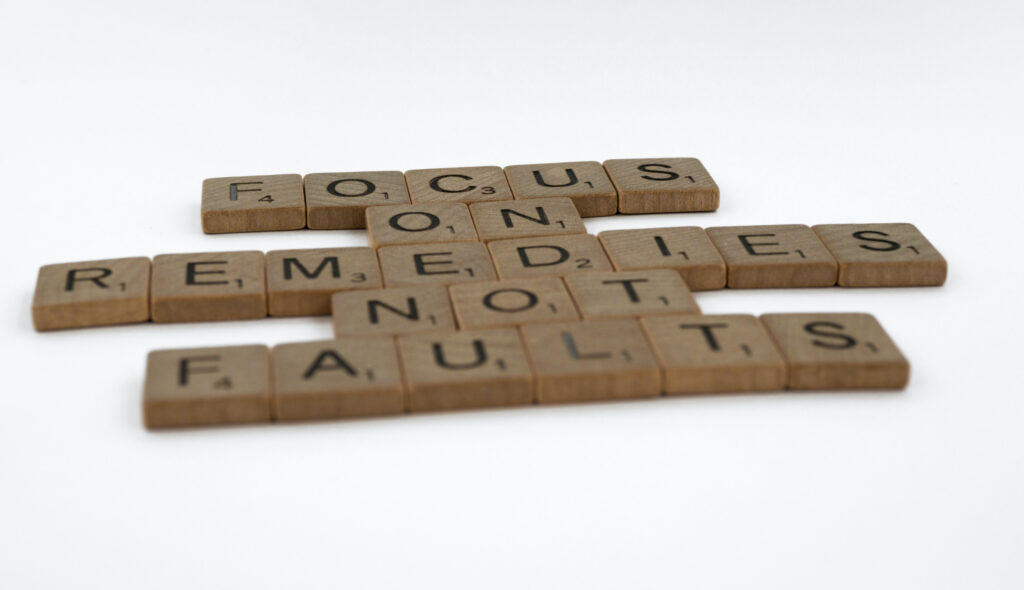I don’t know about you, but in the last few years I have seen so many of my students adopt a victim mindset in pretty much every area of their lives. “ I didn’t have time, but it’s not my fault.” “ I can’t practice, but that’s not my fault.” “ I forgot to eat today, but that’s not my fault.” I seriously had a student tell me that last semester. I’m pretty sure if YOU forgot to eat, then it IS your fault!
I am having to come up with a new game plan when it comes to teaching students, to make them more accountable and to help them gain a better understanding of who they are, what they were created to do, and how to go about getting there.
I think in the Fall I will have a secondary coffee lesson with them to discuss the following things as yet another structure in the fundamentals year:
- Why are you a music major?
- What do you want to do in music?
- What are your physical, mental and emotional weak points?
I am finding that so many of the students have NO idea why they are music majors.
- It sounded like an easy degree – Yeah right!
- I don’t know, I always liked to sing – You do realize that learning to sing takes a ton of work right?
- I loved choir in school – and yet you don’t want to learn how to sing in public or learn basic piano.
The responses can be maddening and they usually end with “ I don’t know, I just can’t figure it out, but that’s not really my fault. “
One of the best things about a music degree is that you can try different career paths on for size. I was a piano major in my undergrad studies. At one point I thought about becoming a music therapist. I tried a couple of courses and did an introductory internship. I realized that with my ADHD, that job was WAYYYYY too slow for me! I much prefer the constant change and energy of collaborating with others. From then on, I was pretty much driven to become an accompanist and took steps in that direction.
Our students may not know exactly what they want to do in music when they first arrive, but at least having a direction at the beginning is extremely helpful. If you know what direction you are heading, then you can take steps to get there, and if you don’t, then I guess that’s your fault.
They also need to know their physical, mental and emotional weak points. I have so many students who don’t realize that they really do have limitations in some area or other. Knowing those limitations and working WITH them instead of against them is key.
Having ADHD for example is not an excuse, it is an asset. It makes you very creative and it allows for you to be flexible in pretty much any situation. However, it also means that you probably lose your music, forget to show up for things, come late to every lesson and rehearsal, can’t focus, etc., etc., etc.
Now a victim would say “I’m just not good at this. It’s not my fault. I have ADHD.” But the person who acts as an overcomer would say “ I really struggle with remembering things, I think I need to get a planner to write everything down. ADHD is not an excuse. I have to learn to function in the real world.”
I always tell my students, “ If you didn’t see me write it down, then it never happened.” And that’s the truth. My memory is about the size of a gnat. I know that about myself and I act accordingly. I write EVERYTHING down and I spend a good amount of time organizing the things I wrote down so that I don’t forget things….because I WILL forget things.
If they know that they deal with depression and anxiety, then they need to take steps to counteract that with adequate sleep, good food and times of rest. Not coming to lessons or coaching sessions is not an option. “ I can’t make it to our rehearsal today, but it’s not my fault, I’m depressed.” If you’re not taking care of yourself, then it IS your fault and you need to take some preventative steps to make sure that you can function.
I know that this sounds more like the job of a counselor than a coach/accompanist, but honestly, how are these students going to be quality musicians if they don’t know these things about themselves? How are you going to function as their accompanist when they don’t show up, they continually forget their music, they don’t practice and nothing ever gets done? I say it’s a lot more healthy for everyone to take a little bit of time up front, discuss these things openly and then hold them accountable for what they are or are not accomplishing. Doing one coffee lesson up front can save you 8 weeks of wasted time during the semester.
These are all a part of building fundamentals in the first year. If they know themselves, then they just might start to see what they are capable of and stop saying “I can’t, but it’s not my fault.“
